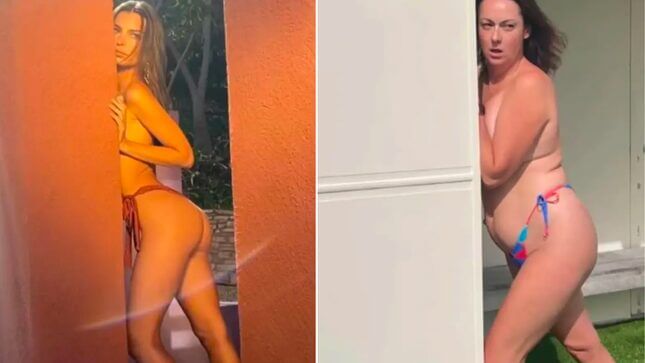Comedian Celeste Barber Says Emily Ratajkowski Blocked Her After Instagram Parody
Barber is famous for playfully re-creating conventionally hot women's photos, but a caption on her 2021 spoof of the model didn't go over well.
Celebrities

Australian comedian Celeste Barber—who is famous for parodying absurd photos and videos posted by models and influencers—may have taken things a bit too far with her post mimicking model Emily Ratajkowski, Barber said in an appearance on Australia’s Fitzy and Wippa talk show on Tuesday. (Editor’s note: Fitzy and Wippa??) Barber said the model blocked her on Instagram in 2021—we’re guessing because of the caption on Barber’s post: “We are sick of you objectifying our bodies! Also, here’s my ass.”
At the time, commenters pointed out to Barber that women can reject being objectified by the male gaze and still make the choice to post our own bikini photos or sexualize or own bodies.
“Have you had feedback from Ratajkowski?” Fitzy or Wippa asked Barber on Tuesday.
“I don’t think Emily is a fan,” Barber replied. “That’s OK, she’s allowed to not love it. But she blocked me.”
-

-

-

-

-

-

-

-

-

-

-

-

-

-

-

-

-

-

-

-

-

-

-

-

-

-

-

-

-

-

-

-

-

-

-

-

-

-

-

-








































